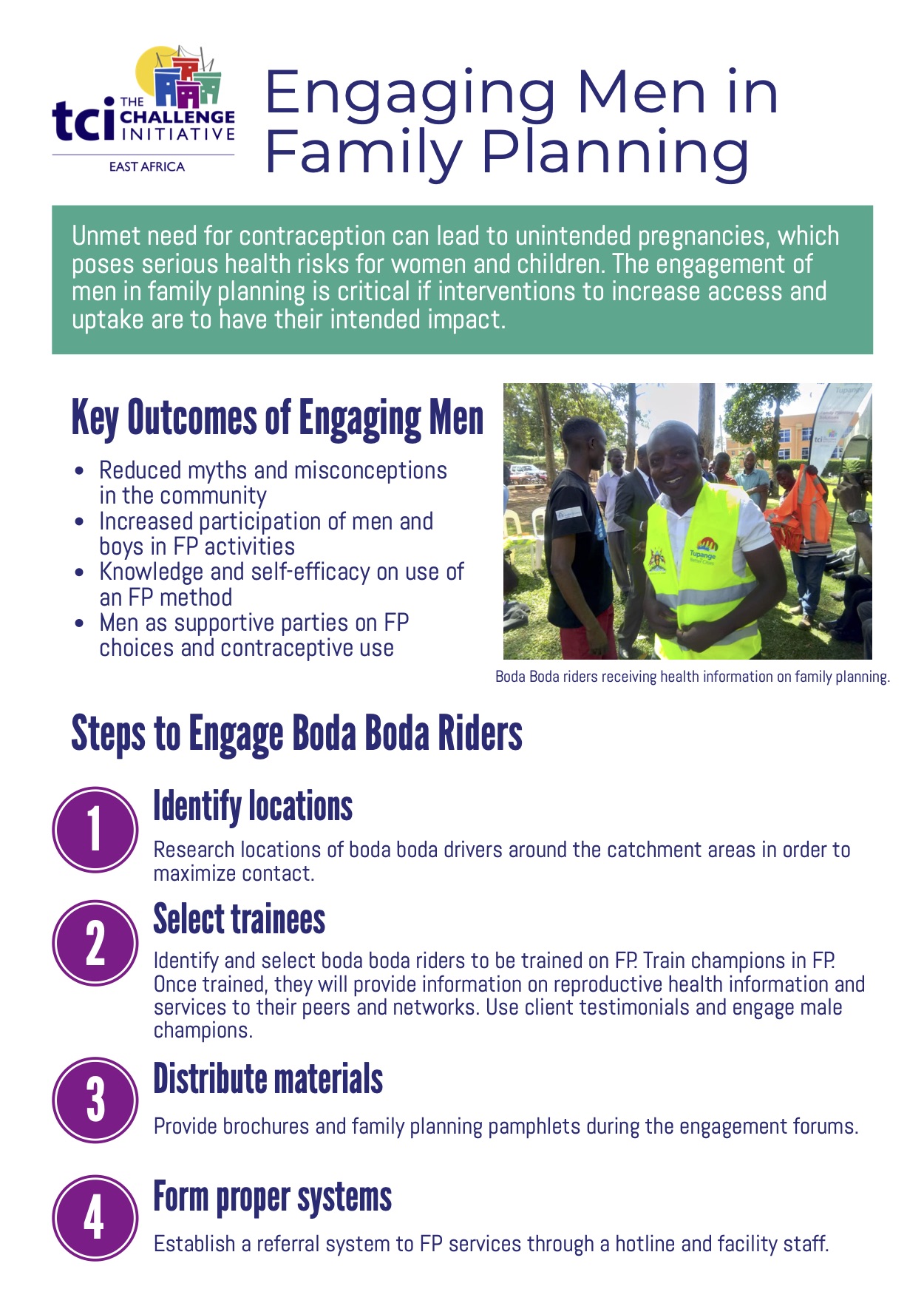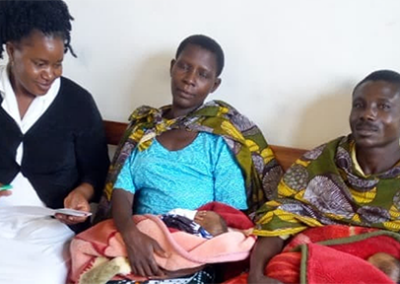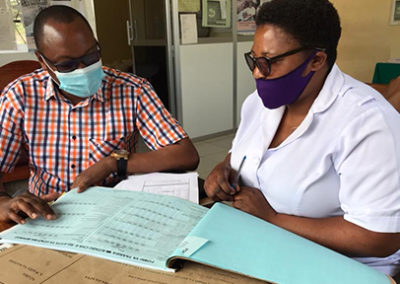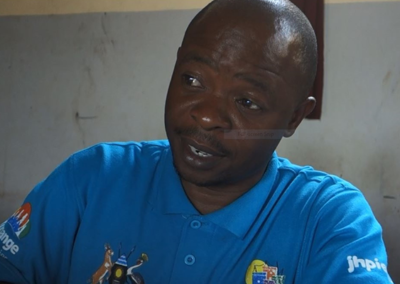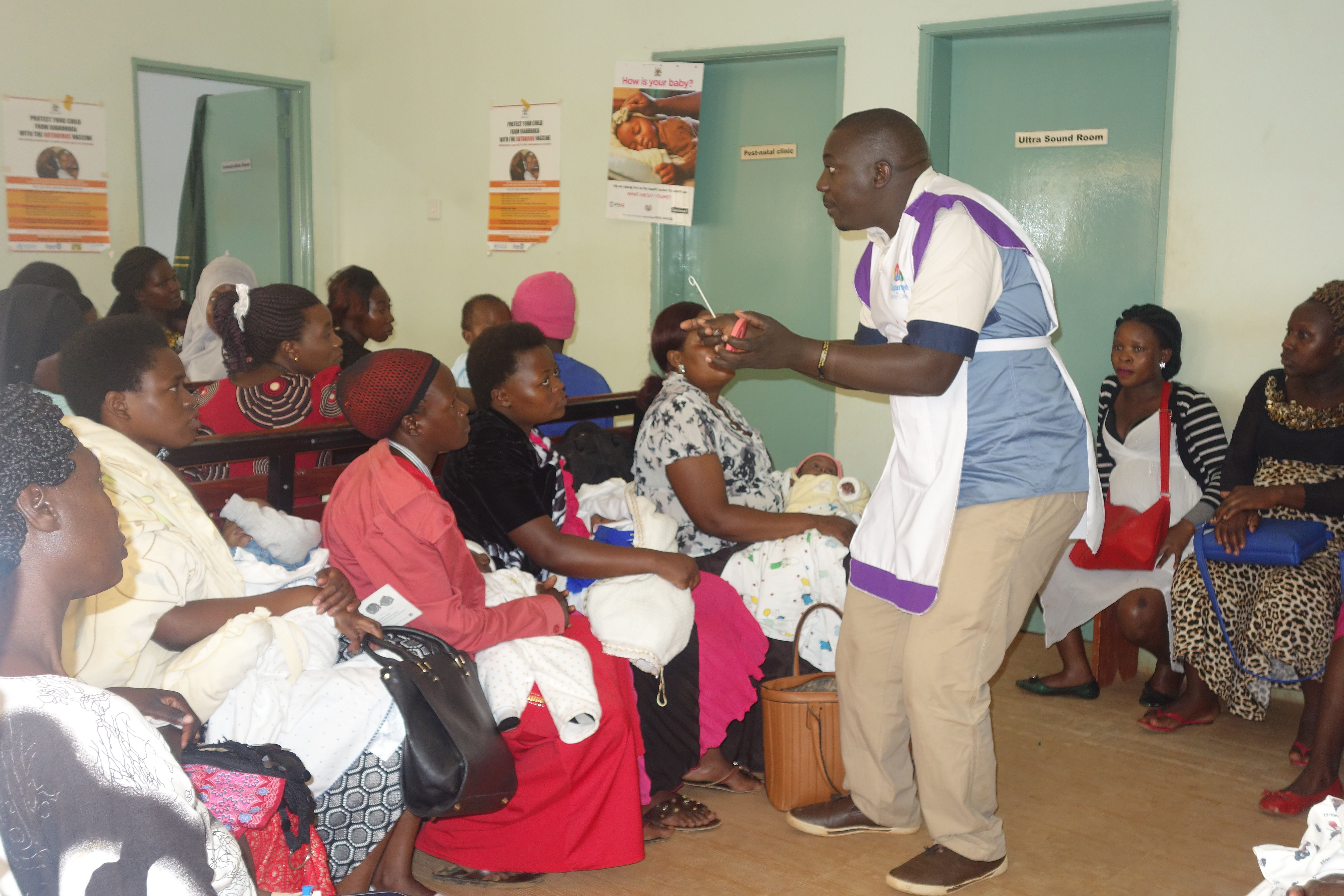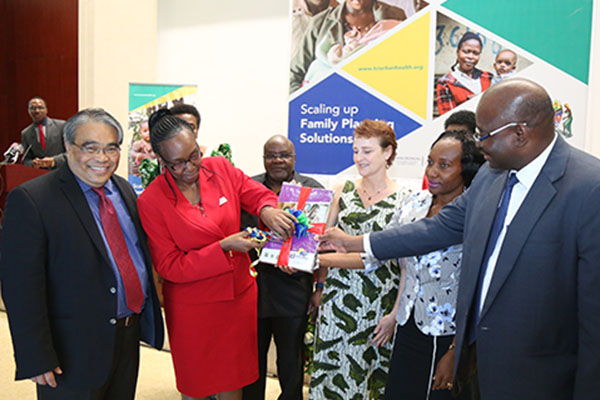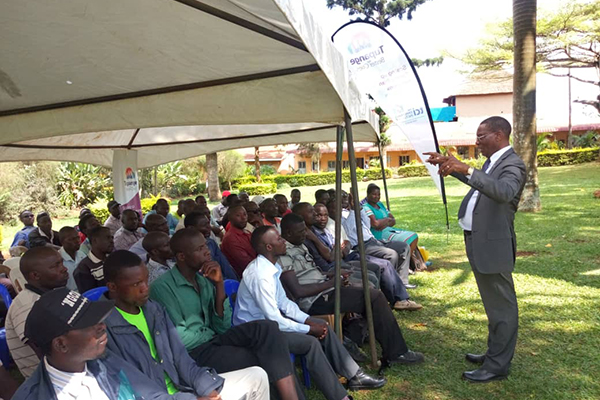East Africa Toolkit: Demand Generation
- Home
- Help and Support
- Close
- Toolkits
- Global Toolkit
- AYSRH Toolkit
- Hub Toolkits
- Core High-Impact Practices
- Gender Essentials Mini Course
- Close
- Resource Collection
- Community of Practice
- Coaching
- Log In/Register
- My Profile
- English
Engaging Men in Family Planning
Unmet need for contraception can lead to unintended pregnancies, which poses serious health risks for women and children. The engagement of men in family planning is critical if interventions to increase access and uptake are to have their intended impact.
Rigid masculine norms around self-sufficiency hinder men from positive health-seeking behaviors, with consequences for themselves and their partners. In most households, men are the key decision makers – including for family planning. In East Africa, men hold most religious and political positions and cultural norms reinforce their power. County executives, mayors, and religious leaders have access to venues where their voices can be amplified, and their statements are considered authoritative. The approaches currently implemented leverage the influence of men in these roles as family planning champions.
Why Is It Important to Engage Men?
- Engaging men as advocates by encouraging them to stand up for women’s sexual and reproductive health has the potential of increasing uptake for contraceptive services.
- It also increases men’s uptake of existing methods and those that require their participation reduces the pressure on spouses or partners.
- Available evidence shows that men are heavily involved in sexuality and reproduction, including when to have children.
- Sharing accurate information on the benefits will help men make informed choices related to positive sexual behaviors.
- Use of men in provision of SRH services experience can enhance and ensure new behaviors are adopted by improving counseling and client support.
Evidence
Evidence suggests that men’s active participation in decisions about family planning and reproductive health promotes better family health. Traditionally, efforts to improve information, counseling and access to family planning and reproductive health have been focused primarily on women. It is however, becoming evident that offering counseling and education to couples and to men in addition to women is more effective (Kenya Family Planning Guidelines 2018).
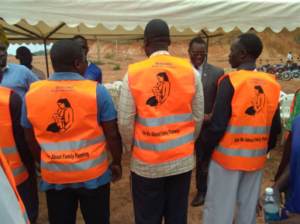 The following evidence has also been observed:
The following evidence has also been observed:
“In Mukono Municipality, boda-boda riders have been educated as champions for family planning and issues of sexuality and reproductive health and family planning. Through community forums and meetings, over 200 men have been reached with messages on family planning.”
Guidance: How to Increase Male Engagement
 Engaging Boda Boda Riders
Engaging Boda Boda Riders
- Research locations of boda boda drivers around the catchment areas in order to maximize contact.
- Identify and select boda boda riders to be trained on FP. Train champions in FP. Once trained, they will provide information on reproductive health information and services to their peers and networks. Use client testimonials and engage male champions.
- Provide brochures and family planning pamphlets during the engagement forums.
- Establish a referral system to FP services through a hotline and facility staff.
Use of Male Family Planning Champions
- Identify and select male champions and train champions in FP.
- Support religious leaders and prominent male leaders to deliver messages normalizing FP and contraception legitimizing men’s participation in FP. Organize sensitization events and meetings with key male influencers and “early adopters” to encourage them to champion family planning provision. Allow champions to share their personal experiences with family planning. Give information on FP/AYSRH including nearby facilities. Facilitate discussions on social and gender norms in the community with community groups, during dialogue days. During the forms.
- Recognize the male champions during health days and events/activities they participate.
 Male FP Champion in Action:
Male FP Champion in Action:
Thomas Mugambe Ssalongo, member of the volunteer health team (VHT) and community mobilizer from Buikwe, Uganda, shared:
“My mindset has changed and I am now a family planning champion in my community. I share my story as a learning experience for the youth in Buikwe District. I hope that the youth and young couples can learn from my story [of fathering 30+ children] and make better decisions by adopting family planning to offer their children quality life. I intend to go for vasectomy soon….I now have new knowledge which I want to impart to others so that they do not go through the same experience like me.”
Key Outcomes
- Reduced myths and misconceptions in the community
- Increased participation of men and boys in FP activities
- Knowledge and self-efficacy on use of an FP method
- Men as supportive parties on FP choices and contraceptive use
Monitoring Processes
These will be different for each approach, but for male engagement activities, be sure to monitor:
- Monitor outcomes of activities where men are involved or participate
- Number of meetings/dialogue days held for male engagement
- Number of facilities providing services to male clients
Success Indicators
- Increased knowledge and awareness of family planning among spouses
- Increased number of men attending ante/post-natal services
Cost
- Printing of IEC materials
- Training of identified male groups
- Meeting costs
- Promotion costs
Sustainability
- Institutionalize approaches to engaging men and boys in SRHR within existing health areas
- Integrate methods to effectively engage men throughout their partner’s pregnancy and postpartum
- Recognition of male engagement champions and mobilizers
TCI APP USERS PLEASE NOTE
You will only receive CERTIFICATES by email – when earning a score above 80% – and will not be able to view or print a certificate PDF from the TCI app.
Test Your Knowledge
Earn a Certificate
Quiz Summary
0 of 5 Questions completed
Questions:
Information
You have already completed the quiz before. Hence you can not start it again.
Quiz is loading…
You must sign in or sign up to start the quiz.
You must first complete the following:
Results
Results
0 of 5 Questions answered correctly
Your time:
Time has elapsed
You have reached 0 of 0 point(s), (0)
Earned Point(s): 0 of 0, (0)
0 Essay(s) Pending (Possible Point(s): 0)
Categories
- Not categorized 0%
- 1
- 2
- 3
- 4
- 5
- Current
- Review
- Answered
- Correct
- Incorrect
-
Question 1 of 5
1. Question
Engaging men as advocates by encouraging them to stand up for women’s sexual and reproductive health has the potential of increasing uptake for contraceptive services.
CorrectIncorrect -
Question 2 of 5
2. Question
Male FP champions can include:
CorrectIncorrect -
Question 3 of 5
3. Question
An Indicator for Success in Engaging Men in FP is:
CorrectIncorrect -
Question 4 of 5
4. Question
How useful did you find the information and/or tools presented on this page? Please write your response in the box below using one of the following phrases: Very useful, Useful, Somewhat useful, Not useful.
Feel free to comment on why you made that choice.
-
This response will be awarded full points automatically, but it can be reviewed and adjusted after submission.
Grading can be reviewed and adjusted.Grading can be reviewed and adjusted. -
-
Question 5 of 5
5. Question
How do you intend to use the information reviewed and/or tools that you accessed?
-
This response will be awarded full points automatically, but it can be reviewed and adjusted after submission.
Grading can be reviewed and adjusted.Grading can be reviewed and adjusted. -
Demand Creation Approaches
Resources
- Engaging men and boys in Gender Equality and Health: A Global Toolkit for Action
- Global Sexual and Reproductive Health Package for Men and Adolescent Boys
- “Boda Boda” riders in Uganda
- Demand Generation Booklet for Tupange
Related Approaches
- Advocacy for Support and Resources for Family Planning
- Family Planning Champions
- Promoting Family Planning and Contraceptive Services Using Radio



